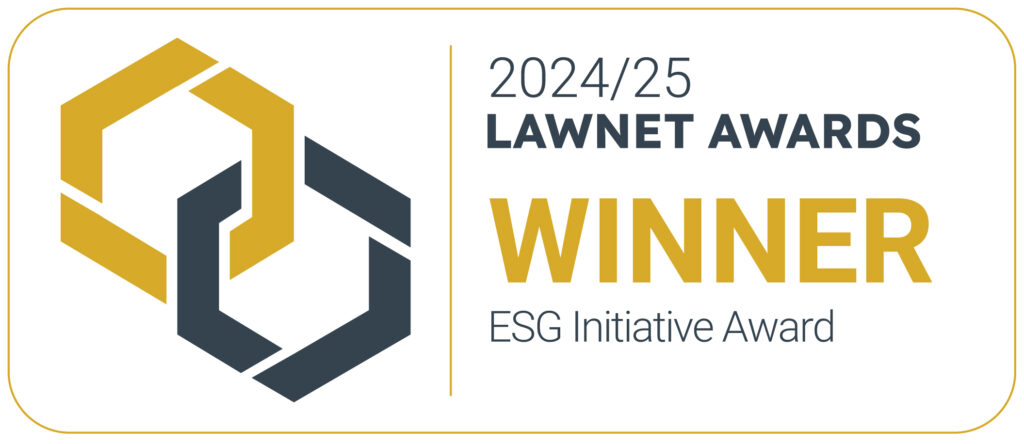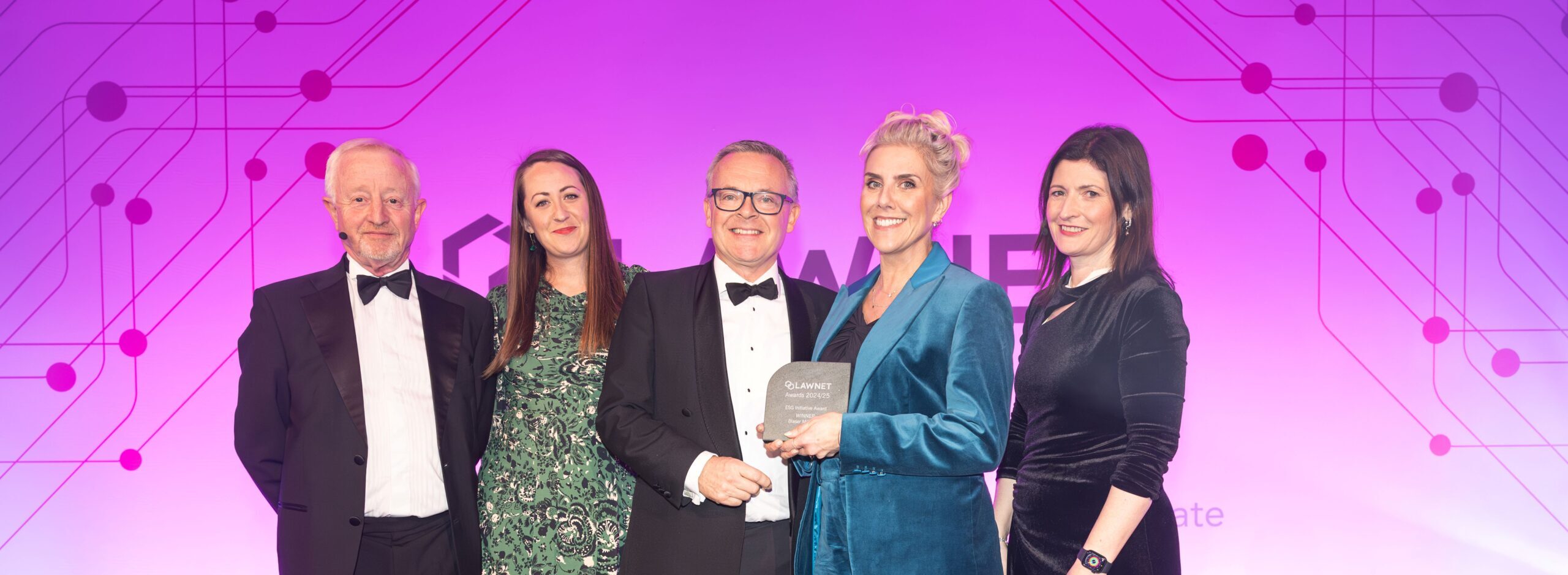The words “law firm” and “happiness” may not often be found in the same sentence, but at Blaser Mills we are working hard to change that.
On Friday 15 November, law firms from across the country gathered in Birmingham for a prestigious awards ceremony to celebrate excellence and achievement in the legal industry.
The event was hosted by LawNet, a not-for-profit nationwide network of over 70 member law firms, all of whom are committed to rigorous quality standards and best practice.
With only ten awards available across different categories, we were absolutely delighted to win the ESG Initiative Award.
ESG – Environmental, Social, Governance, is also known by other terms such as “Responsible Business” and “CSR” – Corporate Social Responsibility. In essence, this covers the ways in which businesses go above and beyond to benefit their people, their communities, and the environment.
The LawNet judges were particularly impressed by our creation of a dedicated role of Responsible Business Partner – Tracy Jones; putting the firm’s impact on our employees, wider community and society at the very top of our priorities.
The judges praised the active staff-led groups within at Blaser Mills, including our Inclusion Forum, Wellbeing at Work Group, Community Group, and Environment Group. They saw that we are taking care to nurture long term relationships with local community organisations, working with education centres, food banks, nature charities, hospices and children’s charities to name but a few. We actively encourages colleagues to volunteer with these groups, giving them dedicated “volunteer leave” for this purpose.
The judges were particularly impressed by our anonymous weekly “happiness survey”, a central tool in the firm’s wellness drive. Every member of staff is sent a short survey each week, asking how their working week has been. The results produce data which can spot where support may be required and encourages teams to problem solve and work together.
“The weekly happiness surveys have had an enormous impact on the culture at Blaser Mills”, explains Tracy. “Law can be a full-on area to work in, with people often not wanting to admit to feeling under-pressure, stressed or overwhelmed.”
Tracy explains that when her colleagues started to feel comfortable with the weekly surveys and the discussions that followed them, people were more open in saying that they might need a bit of extra help. Tracy saw that colleagues began to share ideas more freely, thank each other and congratulate successes. And, over a relatively short period of time, data was available to support what she was sensing – that people were becoming happier at work. “Happy people enjoy their work and do their best work – which means happy clients too! Of course, happiness ebbs and flows. But we now have a firmly established culture where our colleagues can express themselves, knowing that they will be supported.”
Tracy confesses that to her, this feels “like gold, like winning the lottery”. She says, “Having spent all of my working life in law, I know that stress and burnout are significant issues for the legal industry, so to be a part of positive change, still makes me smile every day”.
For more information please visit Responsible business | Blaser Mills Law, or contact Tracy Jones on 07939 203502 (telephone or WhatsApp anytime) or email tracy.jones@blasermills.co.uk.


